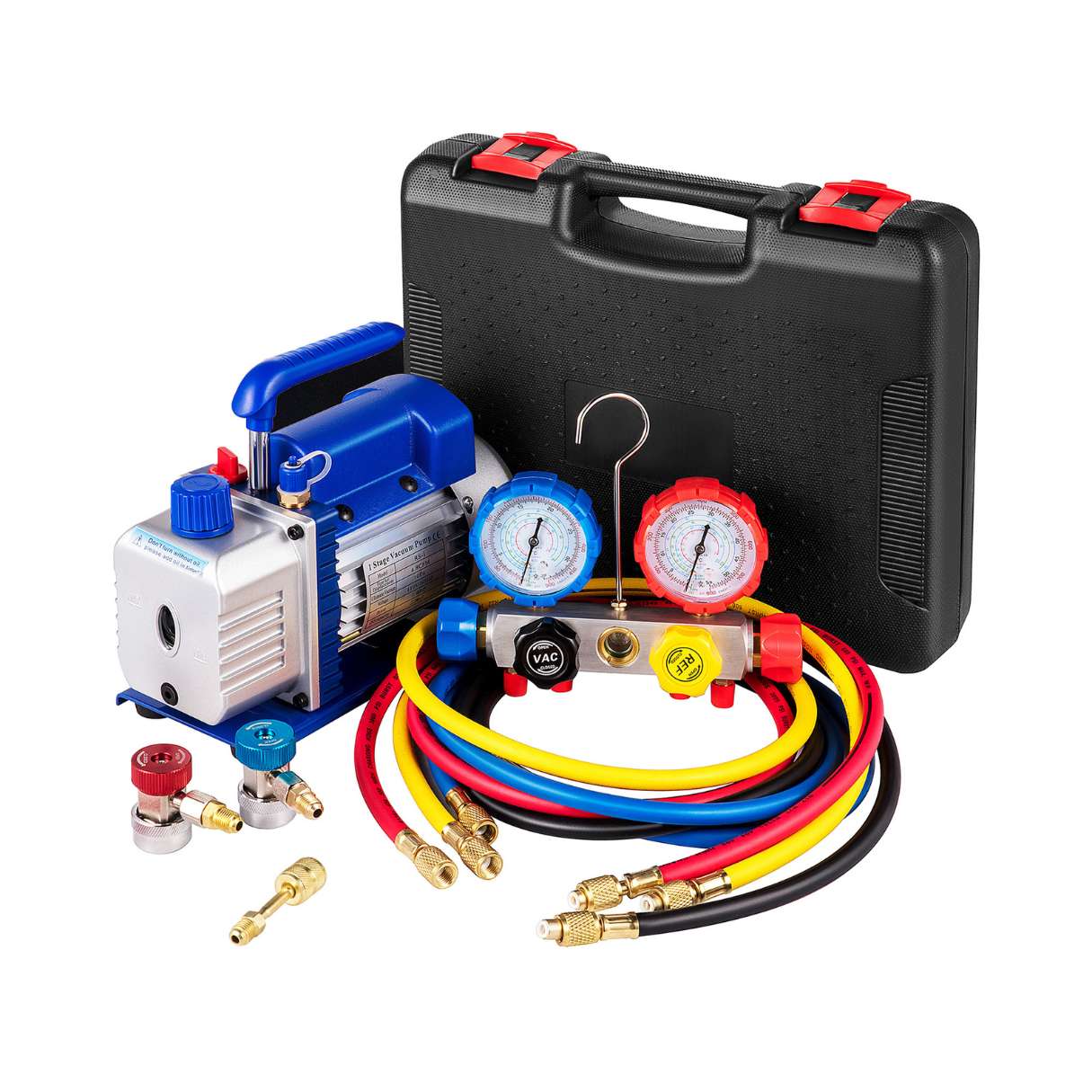

Articles
What Is The Best Vacuum Pump For HVAC
Modified: January 6, 2024
Looking for the best vacuum pump for HVAC? Check out our informative articles for expert recommendations and insights to find the perfect vacuum pump for your HVAC needs.
(Many of the links in this article redirect to a specific reviewed product. Your purchase of these products through affiliate links helps to generate commission for Storables.com, at no extra cost. Learn more)
Introduction
When it comes to maintaining heating, ventilation, and air conditioning (HVAC) systems, having a reliable and efficient vacuum pump is essential. A vacuum pump helps remove moisture, air, and contaminants from the HVAC system, ensuring optimal performance and preventing potential damage.
Choosing the right vacuum pump for your HVAC needs can be a daunting task, as there are different types and models available on the market. In this article, we will provide an overview of HVAC vacuum pumps, discuss the factors to consider when choosing one, compare popular types, and provide recommendations for the best vacuum pumps for HVAC.
Whether you are a professional HVAC technician or a homeowner looking to maintain your HVAC system, this article will guide you in making an informed decision and help you find the best vacuum pump that suits your needs.
Key Takeaways:
- Choosing the right vacuum pump for your HVAC needs involves considering factors such as pumping speed, ultimate vacuum level, portability, reliability, and noise level. By evaluating these factors, you can make an informed decision and select a vacuum pump that meets your specific requirements.
- Proper maintenance and care are essential for ensuring the longevity and optimal performance of your vacuum pump. Regularly changing the oil, cleaning the intake filter, checking connections, and following the manufacturer’s guidelines can help maintain the efficiency and prolong the lifespan of your vacuum pump.
Read more: What Does A Vacuum Pump Do In HVAC
Overview of HVAC Vacuum Pumps
HVAC vacuum pumps are specifically designed to create a vacuum within the HVAC system. By creating a vacuum, these pumps remove air and moisture, effectively preparing the system for troubleshooting, repairs, or maintenance. They are used in a variety of HVAC applications, including refrigeration, air conditioning, and heating systems.
There are two main types of vacuum pumps commonly used in HVAC applications: rotary vane pumps and diaphragm pumps.
Rotary vane pumps are the most popular choice for HVAC professionals. They consist of a rotor with vanes that spin around inside a cylindrical chamber. As the rotor spins, the vanes create chambers that expand and contract, enabling the pump to draw in and expel air. Rotary vane pumps are known for their high efficiency and ability to create deep vacuums.
Diaphragm pumps, on the other hand, use a flexible diaphragm that moves up and down to create the vacuum. They are quieter, smaller, and have fewer moving parts compared to rotary vane pumps. Diaphragm pumps are often preferred for smaller HVAC systems or when noise and portability are important factors.
In addition to these two types, there are also more specialized vacuum pumps available for specific HVAC applications. For instance, if you work with the latest HVAC technology that utilizes environmentally friendly refrigerants, you may need a vacuum pump specifically designed for handling these types of refrigerants, such as a nitrogen vacuum pump.
Now that we have a general understanding of HVAC vacuum pumps, let’s explore the factors you should consider when choosing one for your HVAC needs.
Factors to Consider When Choosing a Vacuum Pump
Choosing the right vacuum pump for your HVAC needs involves considering several important factors. By considering these factors, you can ensure that the vacuum pump you choose is suitable for your specific requirements and will deliver optimal performance.
1. Pumping Speed
The pumping speed of a vacuum pump is a crucial factor to consider. It refers to the amount of air that the pump can remove from the system within a given time. The pumping speed is typically measured in cubic feet per minute (cfm) or liters per minute (l/min). A higher pumping speed indicates a faster evacuation rate, which can be beneficial for larger HVAC systems or those with a higher airflow rate.
2. Ultimate Vacuum Level
The ultimate vacuum level is another important consideration. It refers to the lowest pressure that the vacuum pump can achieve. It is typically measured in microns, with a lower micron level indicating a higher level of vacuum. For most HVAC applications, a vacuum pump with an ultimate vacuum level of around 50 microns is sufficient. However, if you work with systems that require a deeper vacuum, such as those with complex or sensitive components, you may need a pump with a lower ultimate vacuum level.
Read more: How To Pull A Vacuum On HVAC
3. Portability and Size
The portability and size of the vacuum pump can be significant factors, especially if you need to transport it to different job sites. Consider the weight and dimensions of the pump to ensure that it is convenient to carry and store. Additionally, some pumps come with handles or carrying cases, making them easier to move around.
4. Power Source
Consider the power source required to operate the vacuum pump. Some pumps are electric-powered and require a standard electrical outlet, while others may be battery-powered or powered by an HVAC system’s compressor. Choose a vacuum pump that aligns with your available power source and preferences.
5. Durability and Reliability
Investing in a high-quality and reliable vacuum pump is crucial to ensure its long-term performance. Consider the construction materials, build quality, and reputation of the manufacturer when evaluating the durability and reliability of a vacuum pump. Look for models with solid construction and positive user reviews.
6. Noise Level
The noise level produced by a vacuum pump can be a consideration, especially if you will be using it in residential or noise-sensitive areas. Some pumps are designed with noise reduction features to minimize disruptions. Look for pumps with low noise ratings if this is a concern for you.
By considering these factors and weighing their importance based on your specific HVAC needs, you can make an informed decision about which vacuum pump is the best choice for you. In the next section, we will delve into the different types of vacuum pumps commonly used in HVAC applications.
Read more: What Is The Best Vacuum For A Carpet?
Popular Types of Vacuum Pumps for HVAC
There are several types of vacuum pumps commonly used in HVAC applications, each with its own set of advantages and suitable applications. Understanding the different types can help you choose the vacuum pump that best fits your specific HVAC needs. Here are some popular types of vacuum pumps for HVAC:
1. Rotary Vane Pumps
Rotary vane pumps are one of the most common types of vacuum pumps used in the HVAC industry. They work by using rotating blades (vanes) that create chambers to draw in and expel air. These pumps are known for their high pumping speeds and ability to create deep vacuums. Rotary vane pumps are suitable for a wide range of HVAC applications, from residential air conditioning systems to industrial refrigeration units.
2. Diaphragm Pumps
Diaphragm pumps are another popular option for HVAC professionals. They use a flexible diaphragm that moves up and down to create the vacuum. These pumps are smaller, lighter, and quieter than rotary vane pumps. Diaphragm pumps are ideal for smaller HVAC systems or situations where portability and noise reduction are important factors.
3. Piston Pumps
Piston pumps, also known as reciprocating pumps, utilize a piston and cylinder mechanism to create the vacuum. They are efficient and capable of producing high vacuum levels. However, piston pumps are typically larger, heavier, and louder than other types of vacuum pumps. They are commonly used in industrial HVAC applications that require heavy-duty performance.
Read more: What Is The Best Mop And Vacuum
4. Scroll Pumps
Scroll pumps are becoming increasingly popular in the HVAC industry. They use two intermeshing spiral scrolls to create a vacuum. Scroll pumps are known for their high efficiency, low noise levels, and oil-free operation. They are suitable for residential and commercial HVAC applications that require quiet operation and low maintenance.
5. Turbo Pumps
Turbo pumps are highly efficient and capable of creating extremely high vacuum levels. They use high-speed rotating blades to create a vacuum by centrifugal force. Turbo pumps are often used in advanced HVAC applications, such as research laboratories or semiconductor manufacturing, where ultra-high vacuum levels are required.
These are just a few examples of the popular types of vacuum pumps used in HVAC applications. Each type has its own advantages and is suitable for specific HVAC systems. Understanding the different types can help you make an informed decision when choosing the right vacuum pump for your needs.
Now that we have explored the popular types of vacuum pumps, let’s dive into a comparison of the best vacuum pumps for HVAC.
Comparison of Best Vacuum Pumps for HVAC
When it comes to choosing the best vacuum pump for your HVAC needs, it’s important to consider factors such as pumping speed, ultimate vacuum level, portability, reliability, and noise level. To help you make an informed decision, let’s compare some of the top vacuum pumps for HVAC:
1. Robinair 15500 VacuMaster 5 CFM Vacuum Pump
The Robinair 15500 VacuMaster is a popular choice among HVAC technicians. It offers a pumping speed of 5 cubic feet per minute (cfm) and can achieve an ultimate vacuum level of 75 microns. This pump is known for its durability and reliability, thanks to its high-quality construction. It is also relatively lightweight and compact, making it easy to transport and store. The noise level is moderate, making it suitable for both residential and commercial applications.
Read more: What Is The Best Dyson Vacuum Cleaner
2. Fieldpiece VP55 Two Stage 5 CFM Vacuum Pump
The Fieldpiece VP55 is a two-stage vacuum pump that offers a pumping speed of 5 cfm. It can achieve an ultimate vacuum level of 20 microns, making it suitable for more demanding HVAC applications. This pump is designed for reliability and durability, with features like a heavy-duty construction and an isolated oil reservoir to prevent oil contamination. The VP55 is relatively lightweight and compact, making it easy to carry and store. It also has a low noise level, providing a quieter operation.
3. Yellow Jacket 93600 Bullet Vacuum Pump
The Yellow Jacket 93600 Bullet is a powerful vacuum pump that offers a pumping speed of 7 cfm. It can achieve a deep ultimate vacuum level of 25 microns, making it suitable for larger HVAC systems. This pump is known for its fast evacuation times and overall performance. It features a durable construction and is designed for heavy-duty use. The 93600 Bullet is relatively lightweight and compact, with a convenient carrying handle for portability. It has a moderate noise level, making it suitable for various HVAC applications.
4. CPS VP6D 6 CFM 2 Stage Dual Voltage Vacuum Pump
The CPS VP6D is a 2-stage vacuum pump that offers a pumping speed of 6 cfm. It can achieve an ultimate vacuum level of 15 microns, making it suitable for demanding HVAC applications. This pump is designed for durability and longevity, with features like a high-performance motor and a robust aluminum housing. It has a dual voltage capability, allowing it to be used with different power sources. The VP6D is relatively lightweight and compact, with a convenient carrying handle for easy transport. It has a moderate noise level, making it suitable for both residential and commercial applications.
These are just a few examples of the top vacuum pumps for HVAC. Each pump has its own unique features and specifications, so it’s important to consider your specific HVAC needs and preferences when making a choice. Additionally, read customer reviews and consult with industry professionals to gather more insights before making a final decision.
Now that we have compared the top vacuum pumps, let’s move on to our top picks for HVAC vacuum pumps.
Top Picks for HVAC Vacuum Pumps
After careful consideration of factors like performance, reliability, portability, and customer reviews, we have selected our top picks for HVAC vacuum pumps. These pumps have proven to be reliable, efficient, and suitable for a wide range of HVAC applications. Here are our top picks:
1. Robinair 15500 VacuMaster 5 CFM Vacuum Pump
The Robinair 15500 VacuMaster is our top pick for HVAC vacuum pumps. With a pumping speed of 5 cubic feet per minute (cfm) and an ultimate vacuum level of 75 microns, it offers reliable performance and efficient evacuation. The VacuMaster is known for its durability and reliability, making it a trusted choice for HVAC technicians. It has a compact and lightweight design, along with a moderate noise level. This pump is suitable for residential and light commercial HVAC applications.
Read more: What Is The Best Dyson Vacuum Cleaner
2. Fieldpiece VP55 Two Stage 5 CFM Vacuum Pump
The Fieldpiece VP55 is a two-stage vacuum pump that is highly regarded for its performance and reliability. With a pumping speed of 5 cfm and an ultimate vacuum level of 20 microns, it can handle various HVAC tasks. The VP55 features a heavy-duty construction, isolated oil reservoir for oil contamination prevention, and a lightweight design for portability. It offers a relatively low noise level, making it suitable for residential and commercial applications.
3. Yellow Jacket 93600 Bullet Vacuum Pump
If you need a powerful vacuum pump for larger HVAC systems, the Yellow Jacket 93600 Bullet is an excellent choice. With a pumping speed of 7 cfm and an ultimate vacuum level of 25 microns, it provides fast and efficient evacuation. The 93600 Bullet is designed for durability, featuring a sturdy construction and heavy-duty use capabilities. It is relatively lightweight and has a convenient carrying handle for easy portability. The pump offers a moderate noise level, making it suitable for various HVAC applications.
4. CPS VP6D 6 CFM 2 Stage Dual Voltage Vacuum Pump
The CPS VP6D is a 2-stage vacuum pump known for its efficiency and durability. With a pumping speed of 6 cfm and an ultimate vacuum level of 15 microns, it delivers powerful performance for demanding HVAC tasks. The VP6D features a high-performance motor, robust aluminum housing, and dual voltage capability for versatility. It has a compact design and a convenient carrying handle for portability. The pump operates at a moderate noise level, suitable for both residential and commercial use.
These top picks for HVAC vacuum pumps have been selected based on their performance, reliability, and overall customer satisfaction. They are trusted by HVAC professionals and homeowners alike for their consistent performance and efficient operation. Evaluate your specific HVAC needs and preferences to determine which pump is the best fit for your applications.
Next, let’s explore some essential tips for maintaining and caring for your vacuum pump to ensure its longevity and optimal performance.
Read more: What Is The Best Corded Vacuum Cleaner
Tips for Proper Maintenance and Care of Vacuum Pumps
To ensure the longevity and optimal performance of your HVAC vacuum pump, it is essential to follow proper maintenance and care practices. Here are some essential tips to keep in mind:
1. Regularly Change the Vacuum Pump Oil
One of the most important maintenance tasks for a vacuum pump is to regularly change the oil. The oil helps lubricate the pump’s moving parts and protect it from wear and tear. Follow the manufacturer’s recommendations for the type and frequency of oil changes. Regularly inspect the oil for signs of contamination or degradation, and replace it as needed.
2. Clean and Inspect the Pump Intake Filter
The intake filter of the vacuum pump can get clogged with debris over time, affecting the pump’s performance. Regularly clean and inspect the filter, removing any dirt or dust buildup. Depending on the condition of the filter, it may need to be replaced periodically. A clean and unobstructed intake filter ensures proper airflow and helps maintain the efficiency of the vacuum pump.
3. Check and Tighten Connections
Periodically inspect all connections and fittings of the vacuum pump to ensure they are tight and secure. Check for any signs of leaks, such as hissing sounds or oil stains. Loose or leaking connections can impact the pump’s performance and cause inefficiencies. Tighten any loose connections or replace damaged fittings to maintain optimal operation.
Read more: What Is The Best Miele Vacuum Cleaner
4. Keep the Pump Clean and Free of Debris
Regularly clean the exterior of the vacuum pump to prevent the accumulation of dirt and debris. Use a soft cloth or brush to remove any dust or grime. Keeping the pump clean not only improves its appearance but also helps prevent any foreign objects from entering the pump, which could cause damage or affect its performance.
5. Store the Pump Properly
When the vacuum pump is not in use, store it in a clean and dry location. Protect it from extreme temperatures, moisture, and dust. If the pump came with a protective case or cover, use it to provide additional protection. Proper storage helps prevent damage to the pump and ensures its readiness for future use.
6. Follow the Manufacturer’s Maintenance Guidelines
Always refer to the manufacturer’s guidelines and recommendations for maintenance and care. Different vacuum pumps may have specific requirements or intervals for maintenance tasks. Following the manufacturer’s guidelines helps ensure that your vacuum pump operates at its best and maintains its warranty coverage.
By following these tips for proper maintenance and care, you can extend the lifespan of your vacuum pump and maintain its optimal performance. Regular maintenance not only improves the efficiency and reliability of the pump but also contributes to the overall longevity of your HVAC system.
Now that we’ve discussed proper maintenance, let’s wrap up this article.
Conclusion
Choosing the best vacuum pump for your HVAC needs is crucial for maintaining optimal system performance and preventing potential damage. By considering factors such as pumping speed, ultimate vacuum level, portability, reliability, and noise level, you can make an informed decision and select a vacuum pump that meets your specific requirements.
We explored the different types of vacuum pumps commonly used in HVAC applications, including rotary vane pumps, diaphragm pumps, piston pumps, scroll pumps, and turbo pumps. Each type offers its own advantages and is suitable for different HVAC systems and applications.
In our comparison of the best vacuum pumps for HVAC, we highlighted the Robinair 15500 VacuMaster, Fieldpiece VP55, Yellow Jacket 93600 Bullet, and CPS VP6D as top picks. These pumps stood out for their performance, reliability, and popularity among HVAC professionals.
To ensure the longevity and optimal performance of your vacuum pump, we provided essential tips for proper maintenance and care. Regularly changing the oil, cleaning the intake filter, checking connections, keeping the pump clean, and following the manufacturer’s guidelines are all essential for maintaining the efficiency and prolonging the lifespan of your vacuum pump.
Whether you’re a professional HVAC technician or a homeowner looking to maintain your HVAC system, choosing the right vacuum pump and following proper maintenance practices is key. The right vacuum pump can make all the difference in efficiently evacuating and maintaining your HVAC system to keep it running smoothly.
By utilizing the information and tips provided in this article, you can confidently make an informed decision when it comes to selecting the best vacuum pump for your HVAC needs. Remember, proper maintenance and care are essential for ensuring the longevity and optimal performance of your vacuum pump and HVAC system as a whole.
Now, armed with the knowledge and understanding of HVAC vacuum pumps, it’s time to choose the best pump for your needs and take the necessary steps to maintain it. Happy HVAC maintenance!
Frequently Asked Questions about What Is The Best Vacuum Pump For HVAC
Was this page helpful?
At Storables.com, we guarantee accurate and reliable information. Our content, validated by Expert Board Contributors, is crafted following stringent Editorial Policies. We're committed to providing you with well-researched, expert-backed insights for all your informational needs.
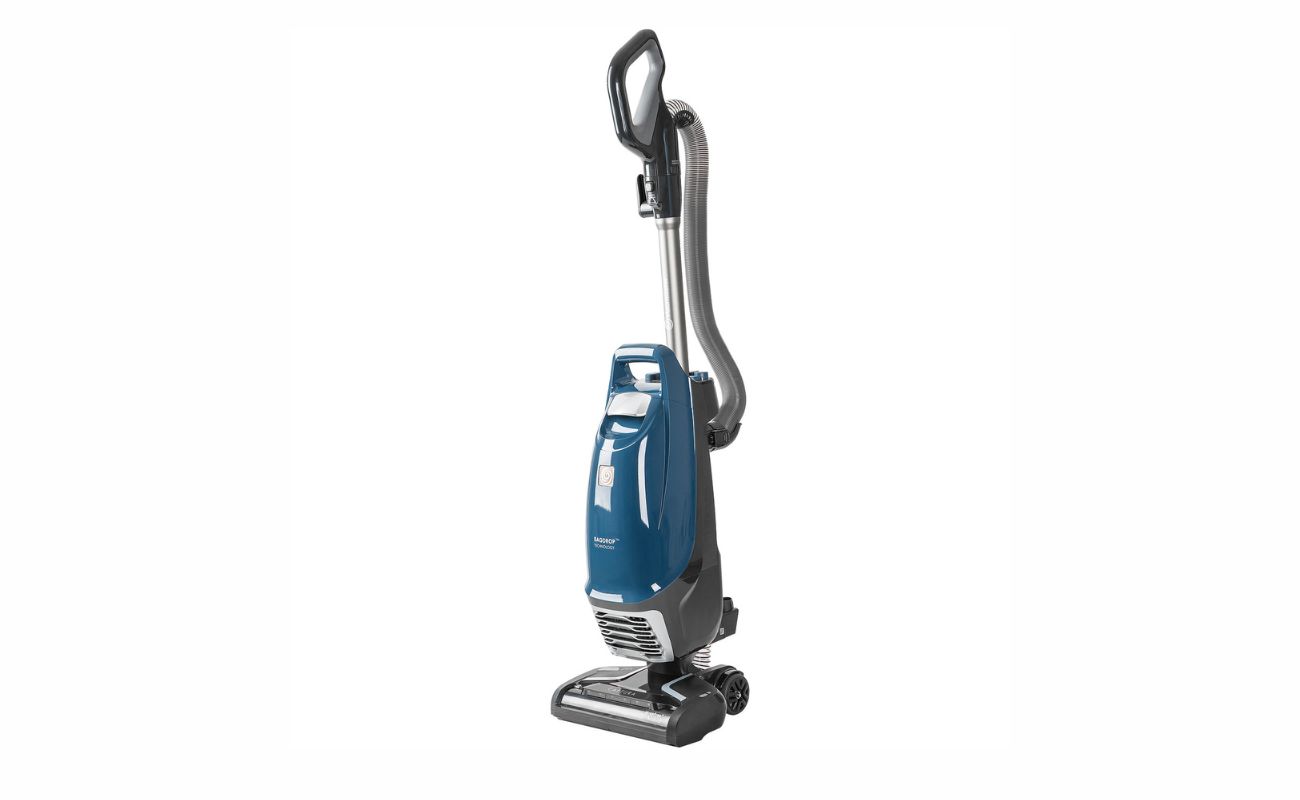
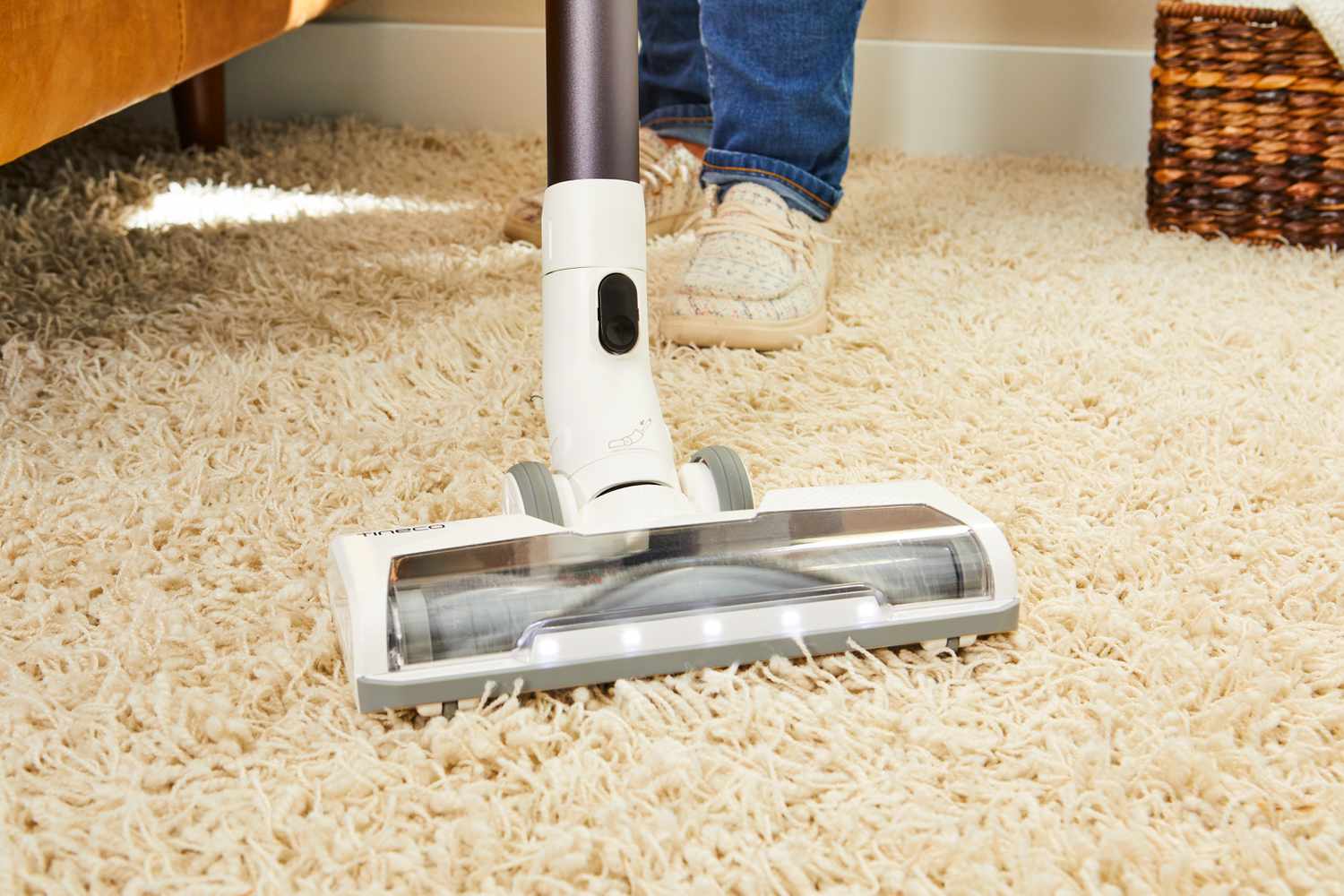
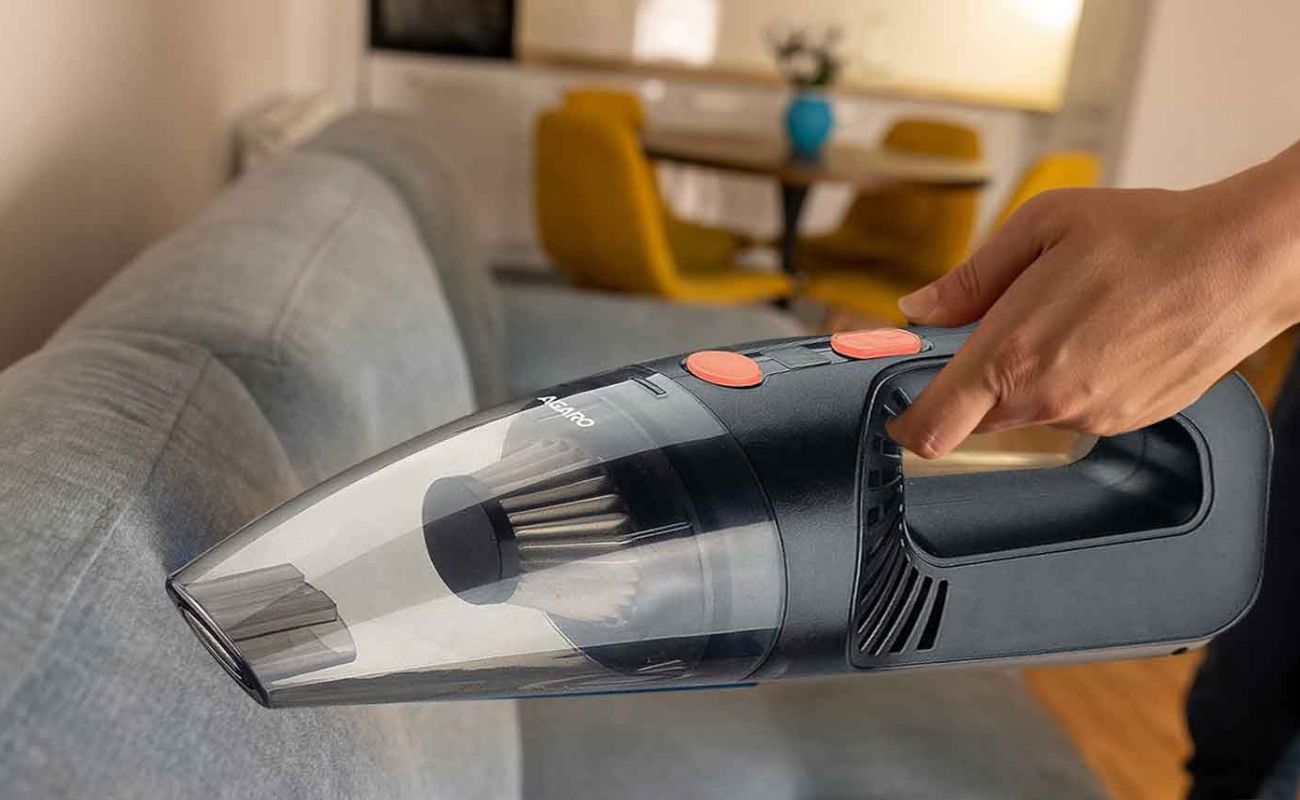

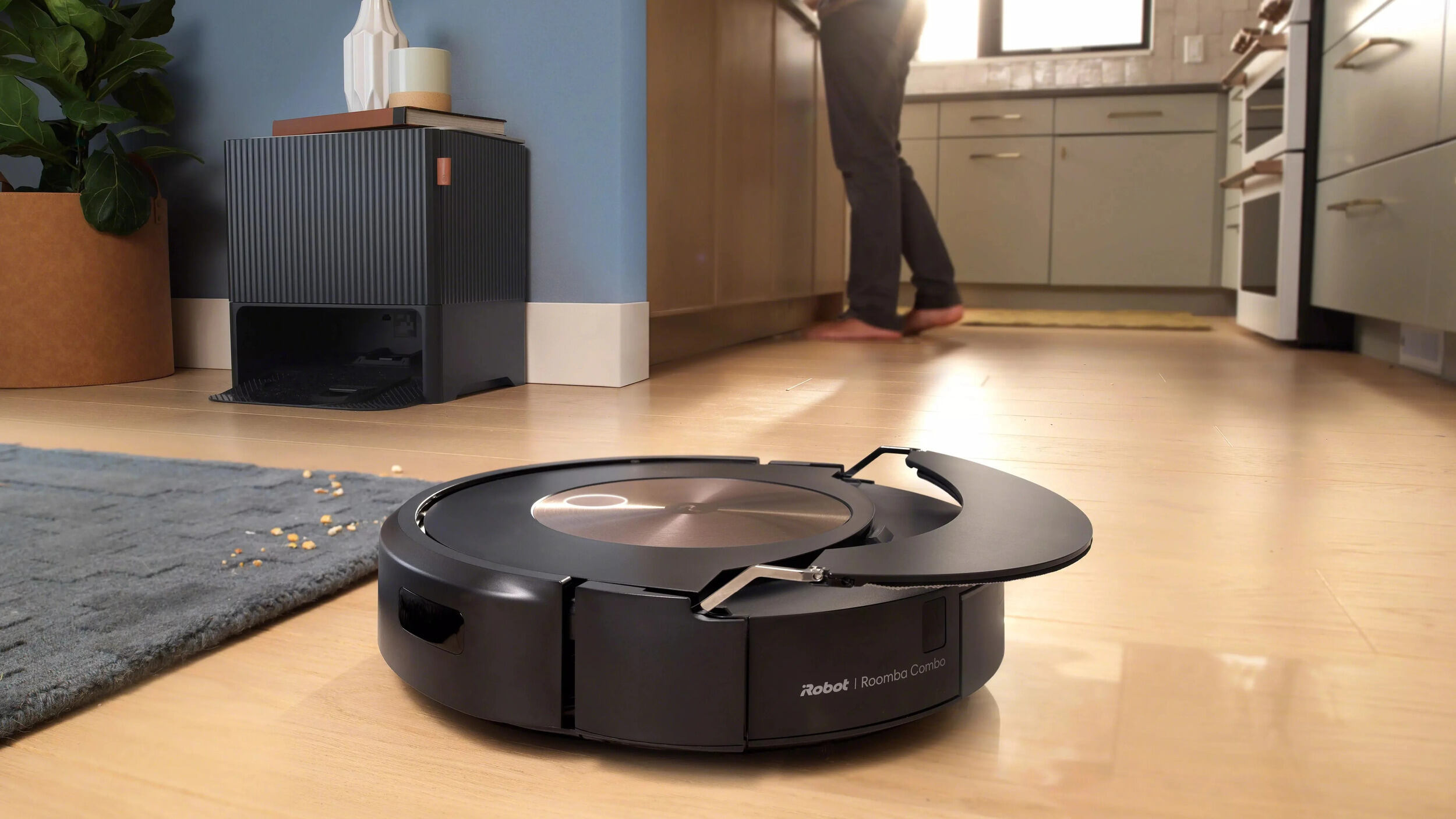
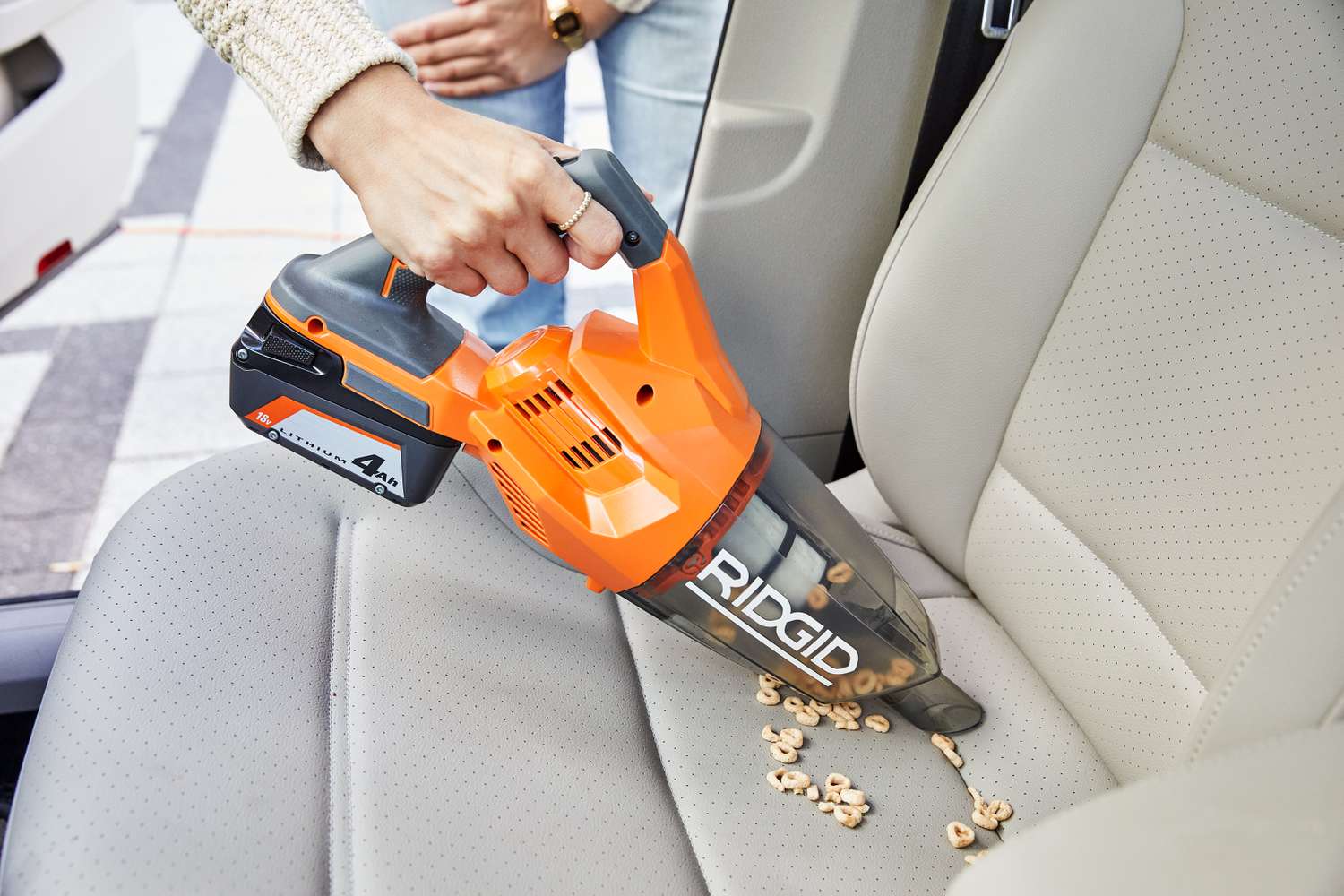
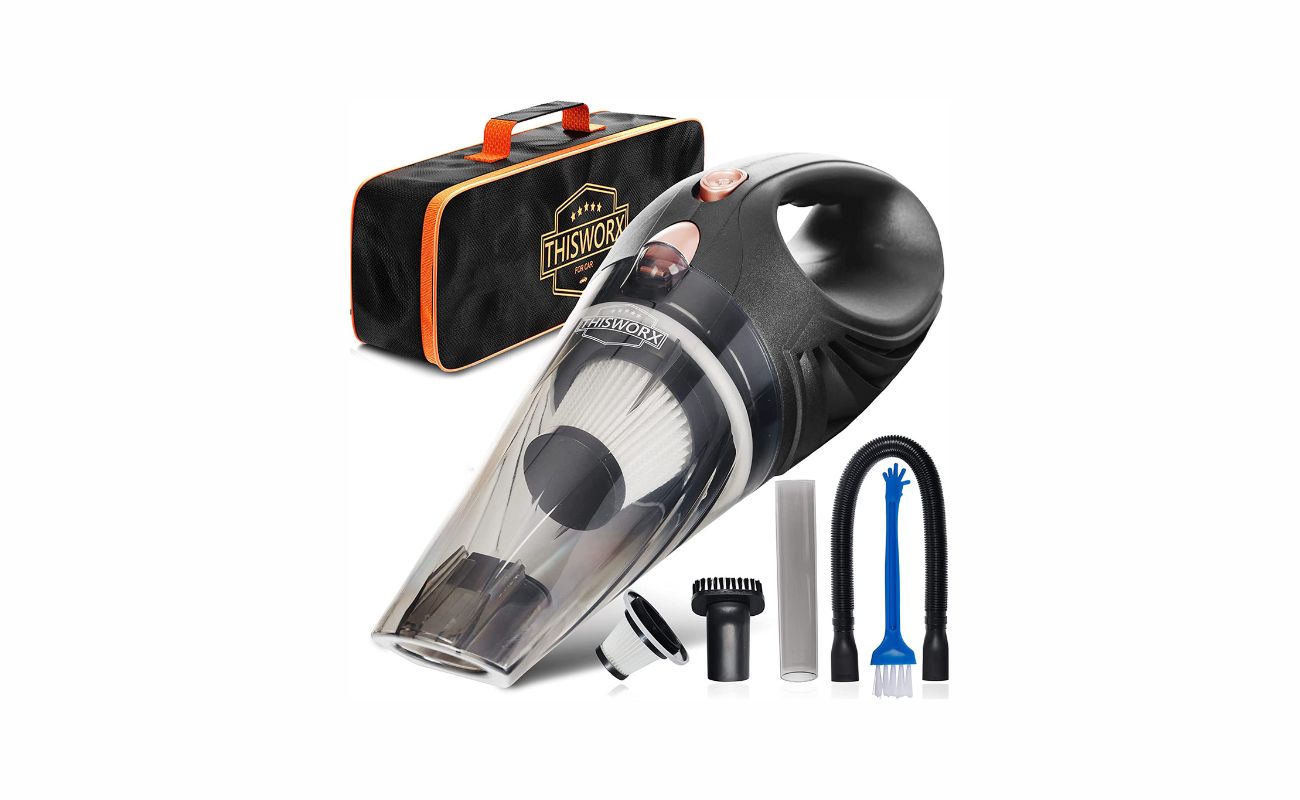
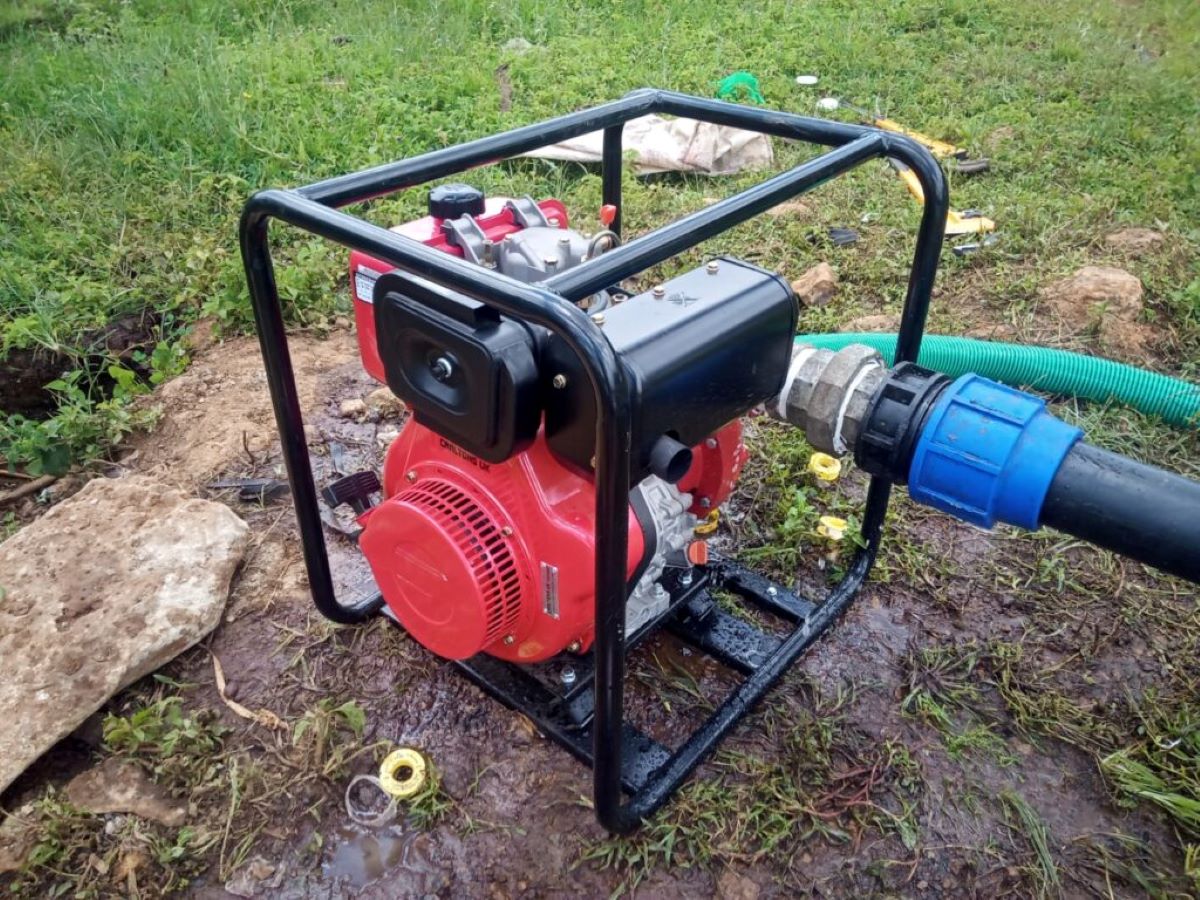

0 thoughts on “What Is The Best Vacuum Pump For HVAC”